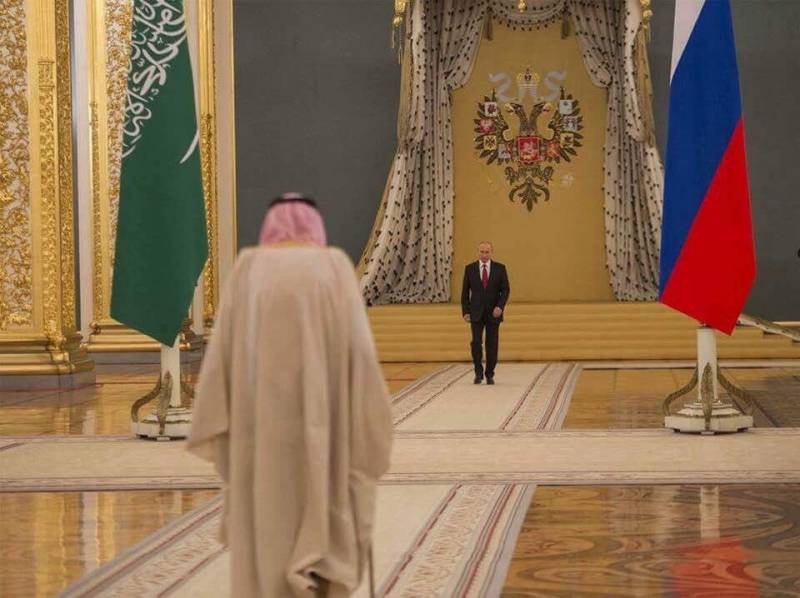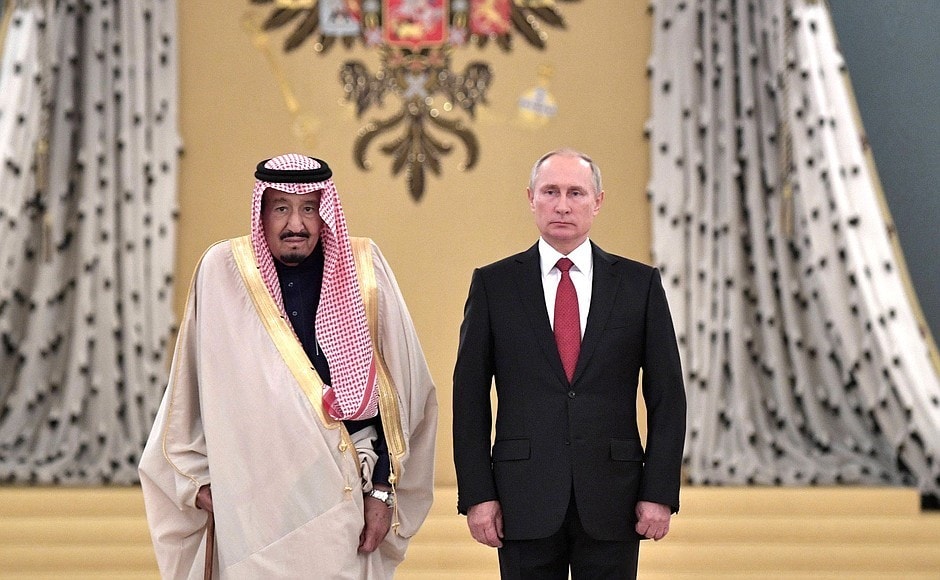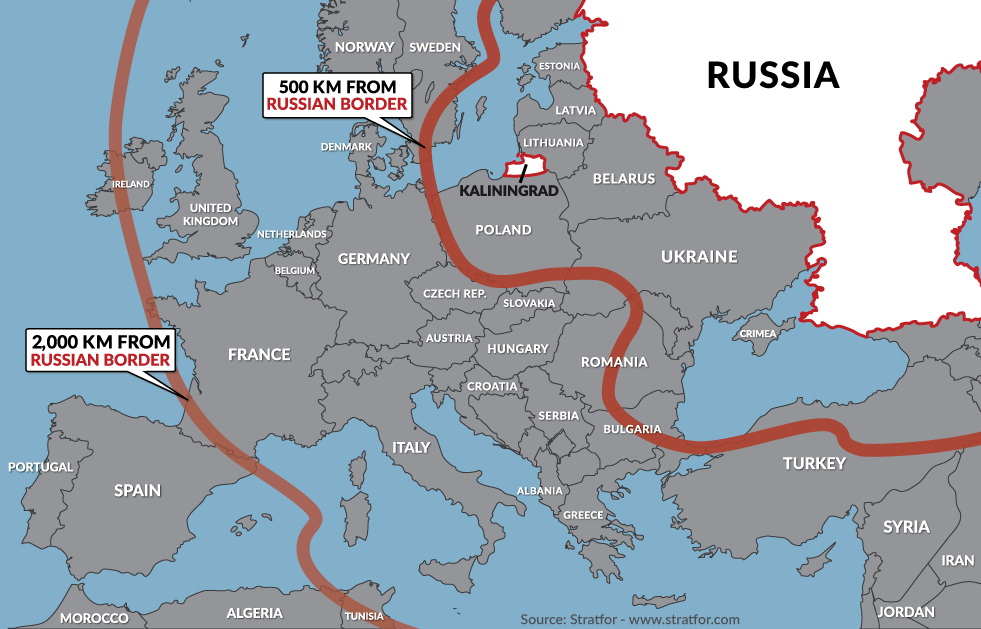Russia This Week is a weekly review by the MEMRI Russian Media Studies Project, covering the latest Russia-related news and analysis from media in Russia, the Caucasus, Central Asia, and Eastern Europe.
Photo Of The Week

Saudi King Salman meeting with Russian President Vladimir Putin (Source: Topwar.ru)
Quote Of The Week

Pavel Zakharov (Source: Riss.ru)
Russian analyst Pavel Zakharov wrote an article, titled "Donald Trump Embroiled In The 'Washington Swamp'", in the Russian Institute for Strategic Studies (RISS), a think tank established by the President of the Russian Federation. In the article, Zakharov states that Trump became part of the "Washington swamp":
"The U.S. President promised to fight against the system, but he became part of it.
"It's been 9 months since Donald Trump has become the President. However, his administration has already faced numerous internal conflicts and personnel reshuffle. Many ideological supporters of the President were forced to leave the administration. Representatives of the old elite – government officials and financiers, who Trump promised to shake up during his election campaign, came into power. Thus, being surrounded by opportunists and with no clear political strategy, the new President is becoming a part of the system against which he promised to fight in 2016."
(Riss.ru, September 13, 2017)
The Visit Of Saudi King Salman To Russia
On October 5, 2017, Saudi King Salman met with Russian President Vladimir Putin. The Russian leader described the meeting as "substantive, meaningful and confidential." Putin stated: "This is the first-ever visit by Saudi Arabia's king to Russia in the history of our relations… It is a very significant event." He then added: "I am certain that your visit will give a good impetus to the development of our inter-state relations."
See MEMRI Special Dispatch No. 7124, Russian media Outlet Topwar.ru: 'Saudi Arabia's King Flew To Moscow To Surrender To The Mercy Of The Winner', October 9, 2017.
See MEMRI Special Dispatch No. 7123, Reactions To Saudi King's Visit To Moscow - RIA: Putin Is The 'New Lord Of The Middle East', October 8, 2017.
See MEMRI Special Dispatch No. 7120, Russian-Saudi Relations - Russian Expert: Russia Will Have To Talk To The Saudis From A Position Of Strength, October 6, 2017.
See MEMRI Special Dispatch No. 7122, On Russian-Saudi Relations, Russia's FM Lavrov Says: King Salman's Historic Visit To Russia Will Bring Our Cooperation To A Totally New Level, October 4, 2017.
See MEMRI Special Dispatch No. 7028, Russian Middle East Expert: KSA's Bin Salman A Friend, But A Difficult One, July 27, 2017.

Saudi King Salman with Russian President Vladimir Putin (Source: Kremlin.ru)

Saudi King with Russian Defense Minister Sergey Shoigu (Source: Ministry of Defense of the Russian Federation)
Visit Of Venezuelan President Maduro To Russia

Meeting with President of Venezuela Nicolas Maduro
On October 4, 2017, the Venezuelan president Nicolas Maduro visited Moscow and met with Russian President Vladimir Putin. During his visit, Maduro participated in the "Russian Energy Week" International Forum.
Putin-Maduro Meeting – Maduro: 'It Is Very Important For Us That We Are Continuously In Contact'
The following are excerpts from the transcript of the meeting between Putin and Maduro:
Putin: "Mr. President, friends, colleagues, I am very glad to welcome you in Moscow.
"We met almost a year ago, last October, but we were always in contact and regularly spoke on the phone.
"We see that Venezuela is going through challenging times but one gets the impression that you have nonetheless managed to establish some kind of contact with the political forces that are opposing you.
"But our countries continue working, in particular, in the economic sphere. There has been a small decline in trade, and we believe it is beyond our control. There are some positives as well, including our continued work on our major projects.
"We are very glad to see you and would like to thank you for taking part in the international event on the sidelines of which we are meeting today. Russian Energy Week may become a regular forum of considerable interest not only to professionals, participants in global energy markets, but also to representatives of the global economy more broadly…"
Maduro: "To begin with, we are grateful to you for the reception accorded to us.
"It is very important for us that we are continuously in contact and analyzing what is taking place in our bilateral relations. We are very grateful to you for the political and diplomatic support that you have given us in these difficult times with which we are gradually coping.
"Attempts were made to impose on Venezuela a model that would shackle us and not allow us to use the resources that we have. The only way to deal with this is by actively working to resolve this issue and sincerely believing that our homeland will be able to take command.
"I believe the visit is taking place at a very good time because Venezuela is in for an upswing: we are coping with our problems and starting to make forward progress. And now is the time when we can coordinate our plans for cooperation in the energy industry, agriculture and trade. We are very grateful to you for the agreement on wheat supplies that was signed. It helped us a lot, first of all in social terms.
"So, I see our meeting as very positive and timely."
(Kremlin.ru, October 4, 2017)
Program Director Of The Valdai Discussion Club Barabanov: Russia Can Expand Its Presence In Latin America
Program Director of The Valdai Discussion Club Oleg Barabanov wrote an article on Russia-Venezuela relations, commenting on Maduro's visit to Russia. The following are excerpts from Barabanov's article, titled "Maduro In Moscow: Russia Can Expand Its Presence In Latin America:"
"Venezuela became one of Russia’s important partners in the previous decade under President Hugo Chavez, and this process continued with Maduro, because thanks to cooperation with Venezuela Russia can seriously strengthen its political and economic presence in Latin America.
"Consultations with Venezuela on such issues as hydrocarbons, oil and gas, were also important. Some of major Russian companies were able to enter the Venezuelan market, build their own enterprises there, organize production, and thereby expand the Russian presence.
"Moreover, Venezuela should be perceived as part of the 'left turn' in Latin America. In the 2000s, several states declared that it was necessary to distance themselves from the United States in order to pursue a more independent foreign and domestic social policy. Among them were Argentina (under the previous leadership), Brazil, Ecuador, Chile, and Bolivia. The recognized leader of this left turn was Venezuela. This dynamics of the Venezuelan and the Latin American policy in general largely meets Russian interests. In particular, it made possible the formation of the BRICS, and this should not be underestimated."
(Valdaiclub.com, October 4, 2017)
Washington Accuses Moscow Of Violating The Intermediate-Range Nuclear Forces (INF) Treaty
The U.S.-Russia controversy over the INF Treaty has been recently escalating. The U.S. Senate has passed a new bill accusing Russia of violating the INF Treaty. The bill states that "the United States is legally entitled to suspend the operation of the INF Treaty in whole or in part for so long as the Russian Federation continues to be in material breach."
The INF Treaty prohibits an entire class of missiles with ranges between 500 and 5,500 kilometers. (Source: Responses to Russian INF Treaty Violations)
While addressing the UNSC Session on Nuclear Non-Proliferation, Secretary of State Rex Tillerson said: "Unfortunately, in recent years, Russia has often acted in ways that weaken global norms and undercut efforts to hold nations accountable. Examples include violating its own obligations under the Intermediate-Range Nuclear Forces Treaty, flouting the security assurances it made at the end of the Cold War, impeding efforts to build on the legacy of past international efforts on nuclear security, and seeking to weaken the International Atomic Energy Agency's independence in investigating clandestine nuclear programs."
(Tass.com, September 22, 2017)
Russian Deputy FM Sergey Ryabkov commented: "We don't know what are these accusations based on. What they told us via diplomatic channels on this issue does not allow coming to the conclusions that the Americans have evidence substantiating their claims… Let me stress the fact that Russia is committed to the INF treaty and it has taken no steps to violate it. We have no intention of quitting the treaty."
Ryabkov actually urged the U.S. to comply with the Treaty's terms. Ryabkov said: "Our main demand is the United States should get back to compliance with the treaty which it violates by placing anti-missile systems Aegis Ashore in Romania and planning their deployment in Poland… We have a whole range of claims for the US and we tell them about this explicitly. Our main demand is the United States should get back to compliance with the treaty which it violates by placing anti-missile systems Aegis Ashore in Romania and planning their deployment in Poland… These are double-purpose systems that may be used to carry out launches of both anti-missiles and attack cruise missiles, and their stationing on the ground is banned by this treaty."
(Tass.com, September 27, 2017)
News In Brief:
- Russian media censor says its warning to CNN concerns a 'trivial violation' (Meduza.io, September 29, 2017; Read the full article)
- CNN may lose license in Russia if violations not eliminated – watchdog (Rt.com,October 5, 2017, Read the full article)
- 'Up to broadcast ban': Russian officials discuss tit-for-tat steps over pressure on RT in U.S. (Rt.com, October 5, 2017; Read the full article)
- FM Spokesperson Maria Zakharova's reactions to U.S. demands for Russia Today America to register as a foreign agent. Zakharova: "Russia complies with all international regulations and laws regarding the freedom of speech, which it has proven many times. When fights without rules begin, the law is distorted and used as a tool for ruining a television company, every step against Russian media will have a proportionate response. Washington should figure out carefully who the target of this response might be. The clock is ticking." (Mid.ru, September 28, 2017; Read the full comment)
- The visit to Russia by Saad Al-Hariri generally fits in well with the logic of Russian-Lebanese relations. The Lebanese Prime Minister's meetings with Foreign Minister Sergey Lavrov on September 12 and 13 and his subsequent reception by President Vladimir Putin were a sequel to February and March meetings. (Valdaiclub.com, September 28, 2017;Read the full article)






